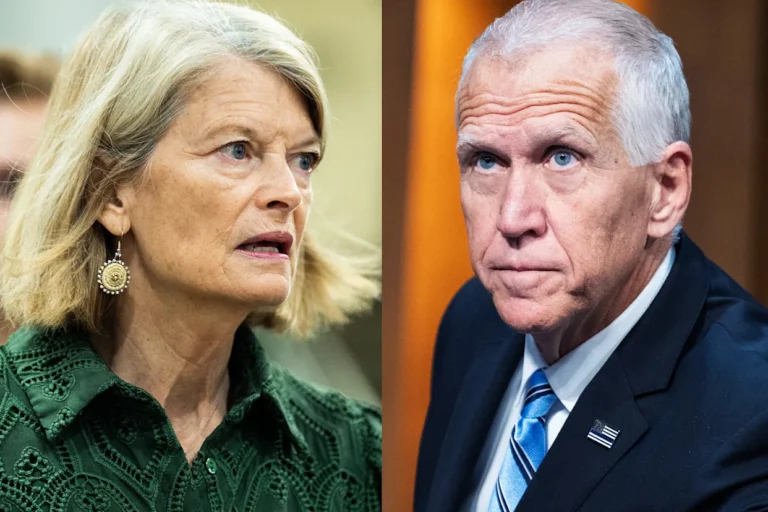
A lawyer for Federal Reserve governor Lisa Cook clashed with the Trump administration Friday in an emergency court hearing to decide if the governor may continue in her job.
US District Judge Jia Cobb, an appointee of former President Joe Biden, left that central question in the high-stakes hearing unanswered, leaving time for Cook’s legal team to file additional legal documents and confer with the administration on procedural next steps.
Cook’s lawyer, Abbe Lowell, is asking Judge Cobb to block President Trump from firing Cook and allow Cook to continue on the job — in other words, maintain the status quo. That includes participating in the Fed’s policy meetings, with its next two-day meeting set to kick off Sept. 16.
Justice Department attorney Yaakov Roth argued that the president should be permitted to fire Cook, alleging that before her confirmation as a Fed governor, Cook had made contradictory representations on mortgage applications.
Roth argued that after Cook’s confirmation, she made further contradictory representations about her real estate properties on documents submitted to the US government.
In June 2021, Cook purchased a home in Ann Arbor, Mich., using a mortgage application that designated the property as a primary residence. Cook purchased another property in Atlanta two weeks later, using a mortgage application designating that property as a primary residence. It was listed for rent the following year, in Sept. 2022.
US Federal Housing Authority Director William Pulte referred the allegations to US Attorney General Pam Bondi earlier this month. On Thursday, in a second criminal referral, Pulte alleged that Cook represented a condominium in Cambridge, Mass., as a second home, which was used instead as a rental investment.
At the heart of the hearing: arguments over what Congress meant in the Federal Reserve Act (FRA) when it said the president could remove Federal Reserve members “for cause.”
Cook’s lawyer argued that “cause” could not be defined without taking into account Trump’s intention in firing Cook, which he attributed to Cook’s decision not to acquiesce to the president’s preference for an interest rate reduction.
Allegations of fraud, Lowell said, were the president’s “weapon of choice” to remove board members and other officers serving the country.
The government’s lawyer, Roth, said that although the president may want to lower interest rates, the matter would amount to a policy issue, which does not qualify as “cause” under the FRA.
“When the President is statutorily empowered to make a determination that’s discretionary, and he makes the determination, and on its face, it’s valid, we don’t go to the sincerity or the motives,” Roth said.
Judge Cobb asked if conduct that occurred before an official’s confirmation could form a basis for a “for cause” termination.
Lowell said it would depend on whether the claim was known to the official at the time of the official’s confirmation and addressed at that time.
Judge Cobb asked Lowell if a degree of carelessness could be considered a cause for removal under the FRA. Lowell suggested that carelessness would be a standard “way too severe,” because it could include an unintentional mistake.
Judge Cobb also inquired about Cook’s claim that she was entitled under the Fifth Amendment’s Due Process Clause to a broader and more formal opportunity to respond to the White House’s allegations.
Lowell said the administration fell short of providing Cook proper notice because its claims were characterized as possible — not definite — misconduct, and communicated to Cook using letters posted to social media.
The judge recognized that applying a notice standard to a Fed official presented a challenge for the court, because members of the Fed could not easily be categorized as elected officials, who do not have a protected interest in their jobs, versus federal employees, who do hold a protected interest in their positions.
Roth argued that a lower notice standard would apply to Cook because higher-ranking positions are much more politically sensitive than positions held by mere employees.
“What about human nature and the importance of [the Fed] being an independent body that is not supposed to be responsive to any type of political pressure?” Judge Cobb asked.
“Your Honor, all I can really say is, that’s why we are not contesting … the legitimacy of the ‘for cause’ removal provision,” the government’s lawyer said.
Lowell reiterated that the court’s analysis should not ignore the president’s motive for trying to terminate Cook, saying, “I don’t think in this case, you can detach them.”
Alexis Keenan is a legal reporter for Yahoo Finance. Follow Alexis on X @alexiskweed.









